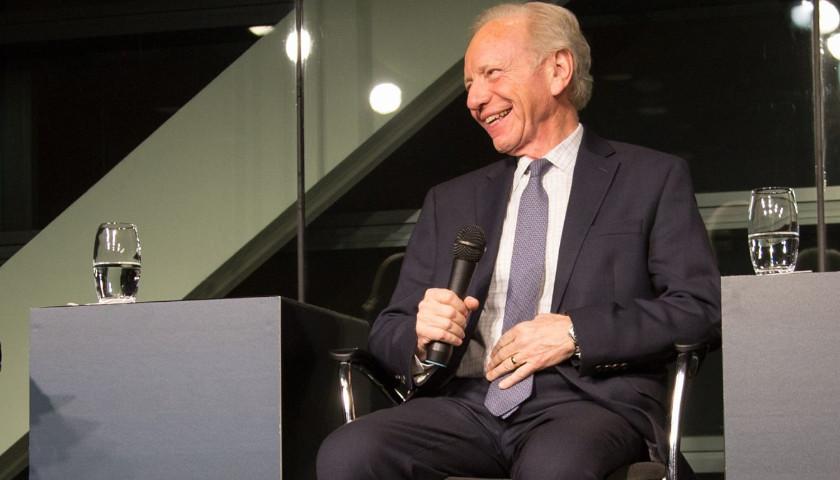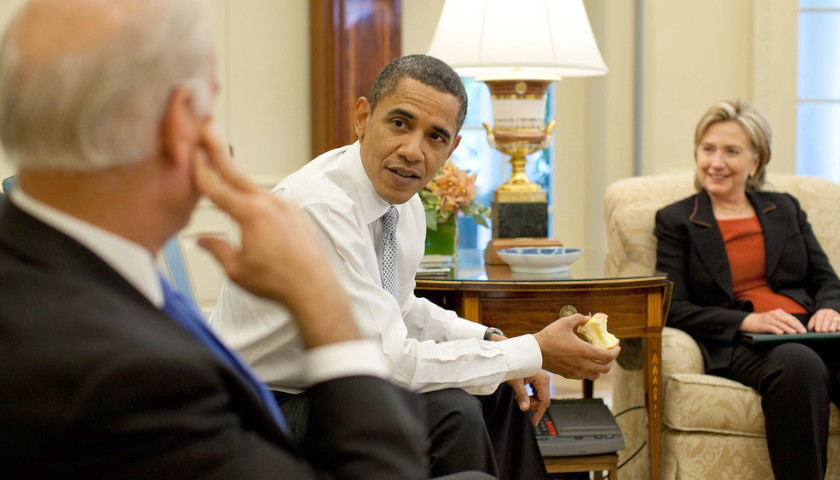by Lanny Davis
I write now, in the worst pain and shock, with news of my friend Joe Lieberman’s death just moments ago. I write because I know what his critics will be quick to write, what news reports have already re-circulated.
The same old attacks on Joe Lieberman, which he and I talked about so often, we both regarded as badges of honor: He often broke with his political friends and allies in the Democratic Party over matters of conscience. His critics did not just disagree with his positions. They had to attack him personally, call him names. But that didn’t dissuade him from sticking to his principles, regardless.
For example, he had the audacity to support a Republican presidential candidate in 2008, John McCain, who was more than one of his best friends. Lieberman regarded Sen. McCain as a political soulmate, and for the same reason his Democratic Party critics scorned him: McCain often went rogue, refused to go along with Republican Party orthodoxy, such as the time he gave thumbs down to Donald Trump’s effort to kill Obamacare. And Lieberman angered Democrats and liberals when he supported the Iraq War because he believed that Saddam Hussein was a threat to world peace and had weapons of mass destruction. I disagreed with him on the war. But I never doubted Joe’s deeply felt convictions that Saddam’s dangers to the world led him to that position.
Joe Lieberman (pictured above) was more than a friend to me. He was more than a brother. He was my inspiration. He was always there for me and his other friends – from my first days as a Yale freshman when I was an aspiring member of the Yale Daily News, where he served in the august position of chairman.
When I was too squeamish to hold my newborn son in my arms during the religious circumcision ceremony called the “bris,” Joe volunteered to do the deed – but only if we made him godfather. And we did. Fittingly, it was Joe’s godson, my oldest son, who called me a little while ago to be the first to tell me that Joe had passed away. I hadn’t heard the news yet.
When I followed Joe at Yale Law School shortly after he graduated and I had entered my first year in 1967, Joe was there to give me advice on what professors to seek out and take, regardless of the subjects they were teaching. Take teachers, not courses, he taught me.
He was a loyal friend of my law school-era friends, Bill and Hillary Clinton, through the years. But when, in September 1998, Joe broke with me and other Clinton loyalists when he criticized Bill Clinton on the Senate floor, I called him furious and upset. He told me calmly that he had been guided by his conscience but that I should tell President Clinton and the first lady that he remained their friend and would not vote for impeachment since this was a personal matter, not an impeachable offense.
I nonetheless told him I disagreed with his decision to denounce the president. But I also told him I respected his sincerity and deeply felt convictions.
When Joe was chosen by Al Gore to be on the 2000 Democratic Party ticket as a vice presidential candidate, I was in the family box with his loving wife Hadassah and his extended family, and when Joe accepted the nomination as the first Jewish nominee for vice president ever. He he marked the moment by saying – with outstretched arms – “Is this a great country, or what?” We all hugged and cried together.
Except for a handful of votes in Florida and too many “hanging chads,” Joe Lieberman would have been vice president and perhaps our nation’s first Jewish president.
Joe made a lot of Democrats unhappy when he supported McCain for president in 2008 and when he was critical of Barack Obama during the campaign, and it made me unhappy. But that never stopped me from loving him and admiring him. I wasn’t the only one who felt this way. After he left office, Bill Clinton expressed that sentiment to President George W. Bush at the White House when Bill and Hillary returned for the presentation of their official White House portraits. “Wouldn’t it be great if we could say someone is right or wrong,” Clinton said, “and not that they are good or evil?”
Joe Lieberman’s honorable life and personal integrity always reminded me of how right Bill Clinton was to make that distinction. I listened to many of my fellow Democrats and fellow liberals using hateful language about my friend Joe. In fact, telling me they hated him.
I would say, again and again, how can you hate someone who has voted with Democratic colleagues in the Senate throughout his career more than 90% of the time? Who is liberal on almost every major issue we hold dear, including reproductive rights, civil liberties, the environment, gun control, social spending for the poor and equal rights for people of color, gay rights, and human rights. How can you hate him? I would so often ask my fellow liberals. Can’t you just disagree?
The last time we spoke, about six months ago (too long ago, I now realize), I had called him to express my concern about his support for the “No Labels” effort to field a third-party ticket. I told him how concerned I was about Donald Trump’s disregard for the rule of law, his threat to suspend the Constitution, to be a dictator for a day, and his embrace of Vladimir Putin and autocracy. How can you do this, Joe?
“This is what I feel, Lannyla,” he said, in his usual way of melding affection and respect with a touch of humor. “But I promise you: If I think what we are doing will help elect Trump, I will withdraw.”
I expressed strong skepticism that he could derail that train before the damage was done. He said softly, “I understand how you feel.” I tried to say the same words, but I just couldn’t. I was too concerned.
Then he said, I love you, Lannyla. And I said, I love you too, Joe.
And now you’re gone. Say it ain’t so, Joe.
– – –
Lanny Davis, a Washington attorney, is writing a book about life lessons learned finding common ground with those he disagreed with. One of his chapters already written is titled:“Joe Lieberman: The Purple Senator.”
Photo “Joe Lieberman” by George W. Bush Presidential Center.





